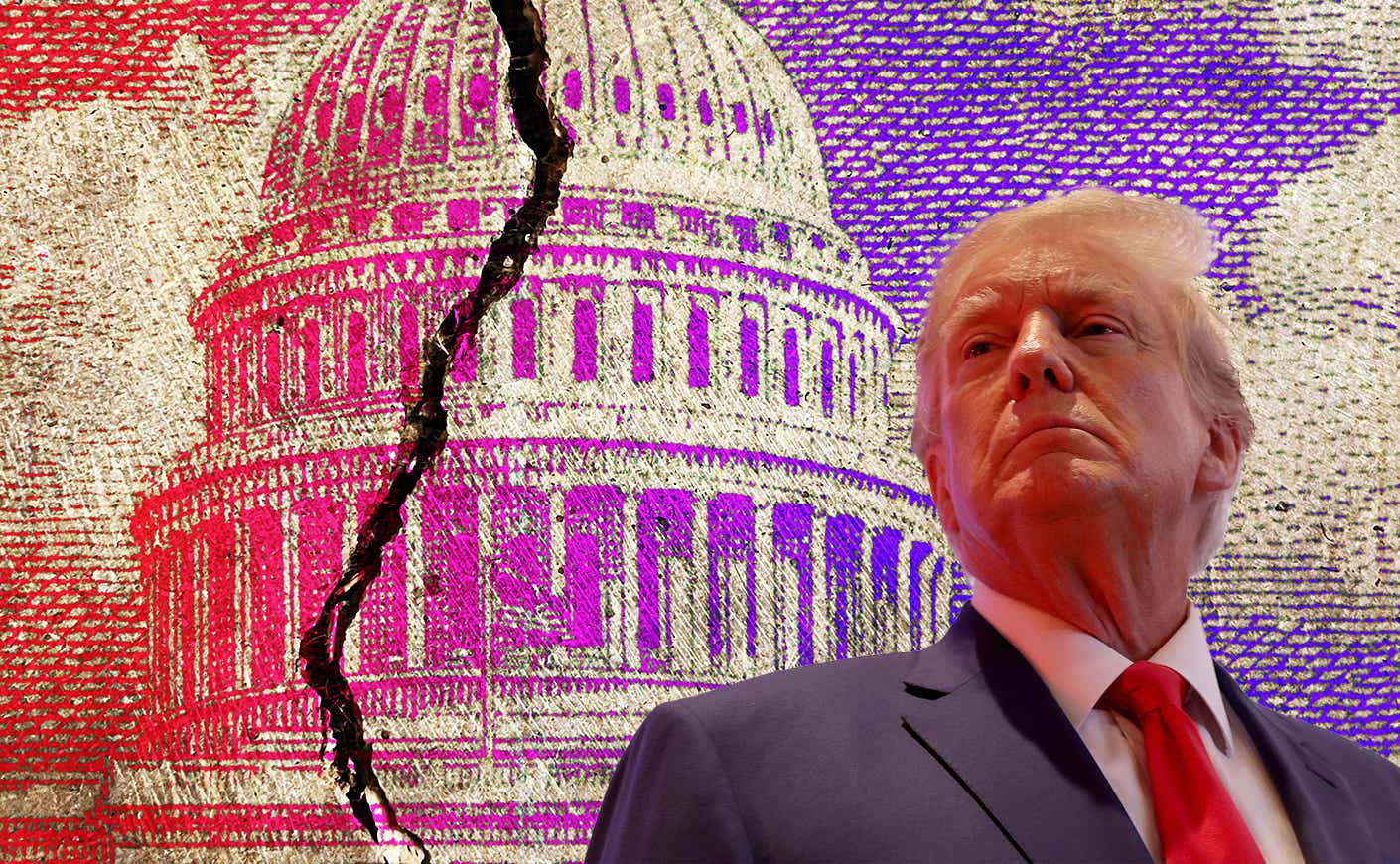Donald Trump has made history this week — and probably not in the way he’d hoped. In an unprecedented move on Monday, the Jan. 6 select committee took up four criminal referrals against the former president.
As part of the committee’s last public hearing, members voted unanimously in favor of recommending that the Justice Department pursue criminal charges against Trump for obstruction of an official proceeding, conspiracy to defraud the U.S., conspiracy to make a false statement, and last but certainly not least, insurrection. If convicted, he could face up to 25 years in prison.
The recommendations came alongside the release of the committee’s final report into its findings from the Capitol attack, and cap a dramatic nearly two-year probe into Trump’s efforts to overturn the 2020 election. As more details come to light, lawmakers who took part in the investigation believe their case for recommending charges was airtight.
“We understand the gravity of each and every referral we are making today, just as we understand the magnitude of the crime against democracy that we describe in our report,” said Democratic Rep. Jamie Raskin. “But we have gone where the facts and the law lead us, and inescapably they lead us here.”
Still, questions remain over the massive report, what Trump’s criminal referrals mean, and how it could impact other Republicans who may have been involved on that deadly day. Here’s a breakdown of what we know so far.
What will the report look like?
Following the committee’s last meeting, lawmakers released a 161-page executive summary of its findings. The full version, including transcripts and other source material, is expected to be released later this week. In the meantime, here are some of the key findings so far:
- Trump “purposely disseminated false allegations of fraud related to the 2020 presidential election in order to aid his effort to overturn the election and for purposes of soliciting contributions.”
- The former president refused to help quell his mob of supporters overtaking the Capitol, and purposely incited more violence by publicly condemning then-Vice President Mike Pence.
- He “unlawfully pressured state officials and legislators” to overturn the election results, and tried “to corrupt the U.S. Department of Justice” by trying to enlist DOJ officials to spread election misinformation.
- Despite Republican criticism, neither the intelligence community nor law enforcement were to blame for the security failures and had alerted the executive branch after detecting potential violence in the lead up to Jan. 6.
Could Trump really face criminal charges?
Committee members plan to send Trump’s criminal referrals in a letter to the Justice Department later this week. Even though they only outlined four counts, Raskin said there could be other statutes that Trump violated while president.
If this sounds unprecedented, it’s because it is, according to historians. While other presidents have certainly faced legal jeopardy, no president has ever been impeached twice or referred by Congress for potential criminal prosecution. For instance, former President Nixon faced three articles of impeachment but resigned before they could be carried out, and he was later pardoned by his predecessor President Gerald Ford.
That said, these referrals don’t carry any legal weight because Congress alone can’t force the Justice Department to take action against Trump (attorney general Merrick Garland will make his own decision following the Justice Department’s separate investigation that’s being lead by Jack Smith). Still, the committee’s chair, Bennie Thompson, hopes the symbolic move “will help provide a roadmap for justice.”
It’s still unclear what these referrals mean for Trump’s re-election aspirations, though he has already made it clear that he’s not worried yet. His spokesman Steven Cheung has already dismissed the panel as a “Kangaroo court” that “has been nothing more than a Hollywood executive’s vanity documentary project,” but only time will tell.
What does it mean for other GOP lawmakers?
Aside from Trump, the committee also issued a criminal referral to the Department of Justice for conservative attorney John Eastman, who the committee says was behind the scheme to pressure Pence to reject states’ electoral votes on Jan. 6. Several others could face criminal counts, including former White House chief of staff Mark Meadows, former Justice Department official Jeffrey Clark, and Trump’s former attorney Rudy Giuliani, who’s already facing the possibility of losing his law license following a separate probe.
Meanwhile, a slew of Republicans, including House Minority Leader Kevin McCarthy, could face civil referrals for refusing to cooperate with congressional subpoenas. “We’ll be considering what’s the appropriate remedy for members of Congress who ignore a congressional subpoena, as well as the evidence that was so pertinent to our investigation and why we wanted to bring them in,” Schiff told CNN on Sunday.
What are experts saying?
Some former law enforcement officials are hoping the final report will make federal law enforcement step forward and take more responsibility for the failure to better protect the Capitol. In addition to downplaying threats leading up to the attack, the Secret Service has faced scrutiny for leaving out thousands of key text messages from members of the former president’s security detail in its report presented to lawmakers in June. In its own defense, the agency has maintained that it hasn’t impeded the investigation, pledging its “unwavering cooperation” with the committee.
“What I would really like to see is accountability. I think that’s the bottom line, whether it’s the Secret Service or the FBI or local police, for not taking some of these threats seriously,” former FBI agent Tracy Walder told NPR. “And they need — either need to have new training in place, in terms of how to understand some of these threats, or we need to look at creating a federal domestic terrorism statute.”









